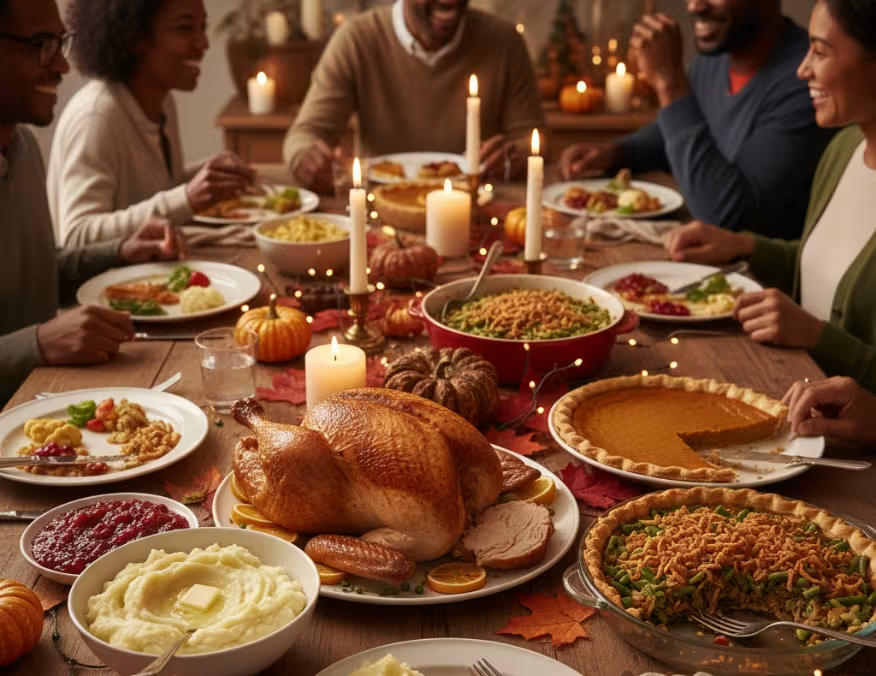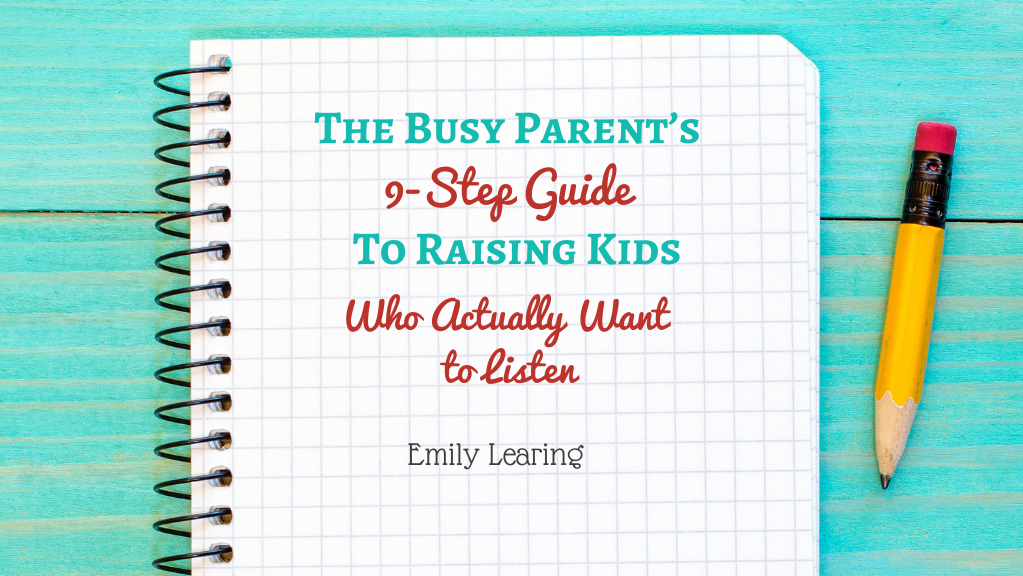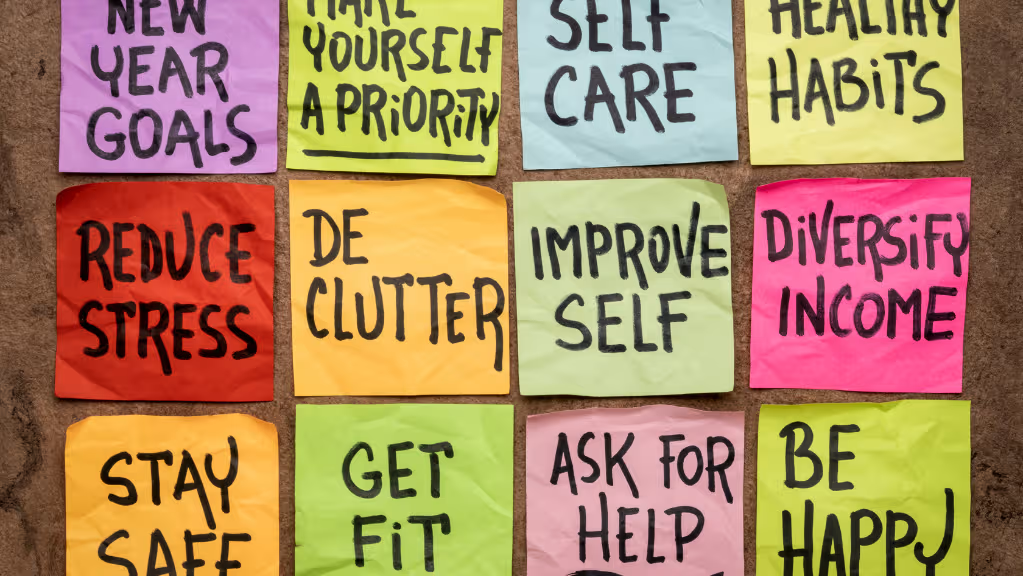Navigating the Thanksgiving Feast: A Guide for Eating Disorder Recovery
The holiday season, especially Thanksgiving, presents significant challenges for individuals in eating disorder recovery due to the intense focus on food and disruption of routines. Proactive strategies are essential, including maintaining a structured meal plan, identifying a support person, and setting firm boundaries against diet-talk. By shifting the focus from food consumption to connection and practicing self-compassion, individuals can prioritize their well-being and recovery over the holiday pressures.

For individuals recovering from an eating disorder, the holiday season, with its intense focus on food and family gatherings, can be a particularly challenging time, often leading to increased anxiety and a risk of relapse. Thanksgiving, in particular, may disrupt established meal routines and expose individuals to diet-talk and intense scrutiny of food choices, which are common triggers.
Anticipate Triggers and Plan Ahead
One of the most effective strategies for navigating high-risk situations like holiday meals is proactive planning (Tylka, 2011).
- Maintain Routine: The disruption of regular structure can be highly anxiety-provoking. Sticking to your regular, structured meal plan and eating at your usual times on Thanksgiving Day is crucial, rather than skipping meals to "save up" calories. This steady intake helps regulate hunger cues (Fairburn et al., 2003).
- Identify Your Support System: Prior to the event, designate a support person (a trusted family member, friend, or partner) who is aware of your recovery needs. Research shows that social support is a critical protective factor in recovery (Weissman et al., 2005). You can plan non-verbal cues with this person for when you need a distraction or a brief exit.
- Establish Boundaries: Holiday gatherings often include "diet talk," body shaming, or commentary on food choices. Decide ahead of time how you will respond or disengage (e.g., changing the topic, using a pre-planned script, or walking away) to protect your mental space (Waitt, 2022).
Mindful Eating and Challenging Food Rules
The Thanksgiving meal itself can be a major stressor. Shifting the focus from the quantity of food to the quality of the experience is key.
- Challenge Food Morality: People in recovery often categorize foods as "good" or "bad." However, all foods can be part of a flexible, balanced diet (Tylka, 2011). Give yourself unconditional permission to eat all foods, including traditional holiday items, without guilt or shame. This helps dismantle the restrictive mindset that often leads to a cycle of binging and purging (Fairburn et al., 2003).
- Focus on the Present: Engage in mindful eating, paying attention to the colors, smells, textures, and company, rather than the internal monologue of the eating disorder (Kristeller & Wolever, 2011). Use conversation to ground yourself at the table.
- Post-Meal Distress: The period immediately following a large meal can be highly triggering. Have a non-food-related distraction plan ready, such as playing a game, going for a gentle walk with your support person, or engaging in a hobby (The Emily Program, 2023).
Refocusing on Connection, Not Consumption
The true meaning of the holiday lies in connection and gratitude, not the size of the meal.
- Shift the Conversation: Actively steer discussions toward topics other than food, weight, or exercise. Family members should be encouraged to focus on shared experiences, hobbies, and non-appearance-based compliments (e.g., "I'm so glad to see you," or "You have a great sense of humor") (Tiggemann & Slater, 2014).
- Prioritize Well-being: If an event feels overwhelming, remember that your recovery is your priority. It is okay to say "no" or leave early (The Renfrew Center, 2024). Practicing self-care, even small acts like finding a quiet space for deep breathing, is not selfish—it is necessary for sustained recovery (White et al., 2021).
- Embrace Self-Compassion: Acknowledge that the holiday is difficult, and any struggles or "slips" do not erase your progress. Recovery is not linear. Treat yourself with the same compassion you would offer a dear friend (Gilbert, 2005).
When to Seek Professional Support
If a teen is showing increased distress, is avoiding food, exhibiting ritualistic eating behaviors, or engaging in excessive exercise around the holiday, it is a sign that professional intervention may be needed. Always consult with a specialized eating disorder therapist or dietitian to develop a personalized holiday management plan.
References:
- Fairburn, C. G., Cooper, Z., & Shafran, R. (2003). Cognitive behaviour therapy for eating disorders: A transdiagnostic theory and treatment. Behaviour Research and Therapy, 41(5), 509–528.
- Gilbert, P. (2005). Compassion: Conceptualisations, research and use in psychotherapy. Routledge.
- Kristeller, J. L., & Wolever, R. Q. (2011). Mindfulness-based approaches to eating disorders. Mindfulness-Based Treatment Approaches, 151–172.
- Tiggemann, M., & Slater, A. (2014). Body image and disordered eating in adolescent girls: The role of peer comparisons. Body Image, 11(1), 10–14.
- Treasure, J. (2012). Eating disorders. The Lancet, 379(9821), 1604–1614.
- Tylka, T. L. (2011). Development and psychometric evaluation of a measure of intuitive eating. Journal of Counseling Psychology, 58(2), 161–183.
- Tylka, T. L., & Subich, L. M. (1999). Toward a model of the role of family, peer, and media influences in the eating attitudes and behaviors of early adolescent girls. Journal of Counseling Psychology, 46(4), 503–517.
- Weissman, J., et al. (2005). Social support and coping in eating disorders. Eating Behaviors, 6(4), 314–323.
- White, M. A., et al. (2021). Managing an Eating Disorder at Thanksgiving. Psych Central.
- Waitt, S. (2022). 7 Tips for Getting Through Thanksgiving in Eating Disorder Recovery. NEDA.
- The Emily Program. (2023). Thanksgiving and Eating Disorder Recovery: Helpful Tips.
- The Renfrew Center. (2024). Thanksgiving & Eating Disorder Recovery: Navigating the Holidays.




